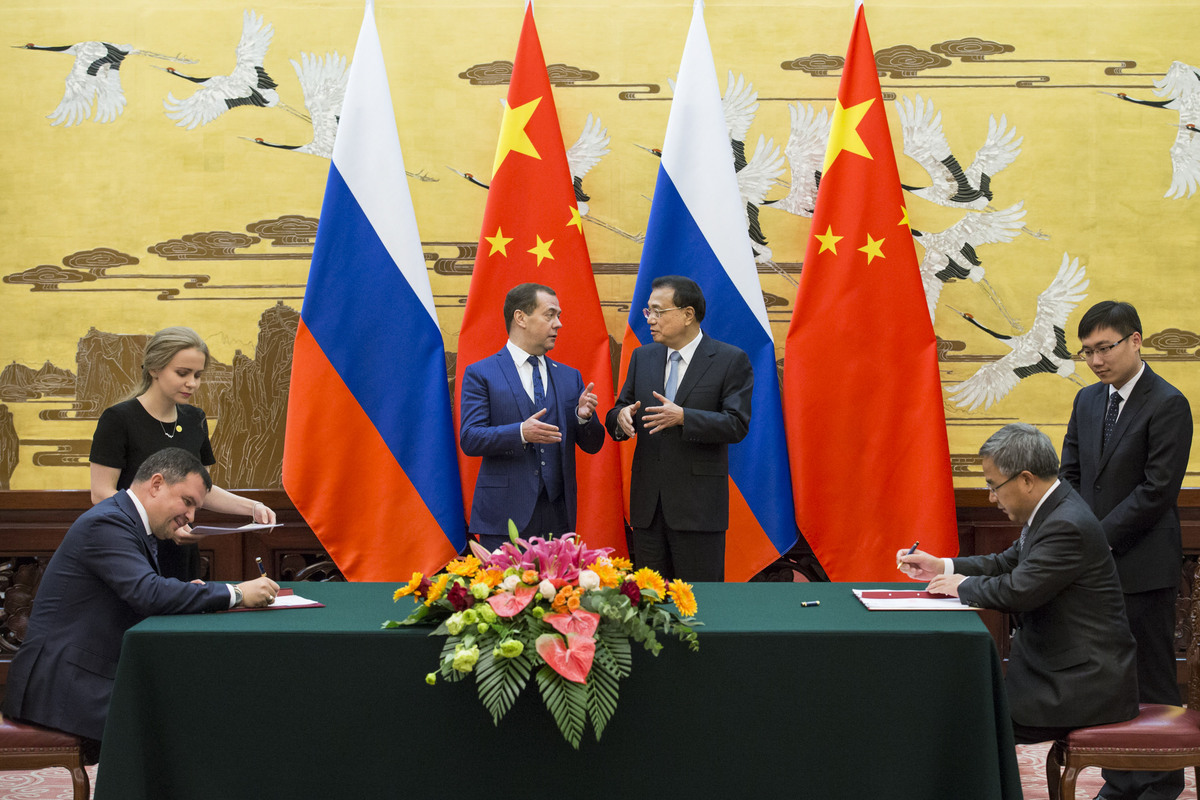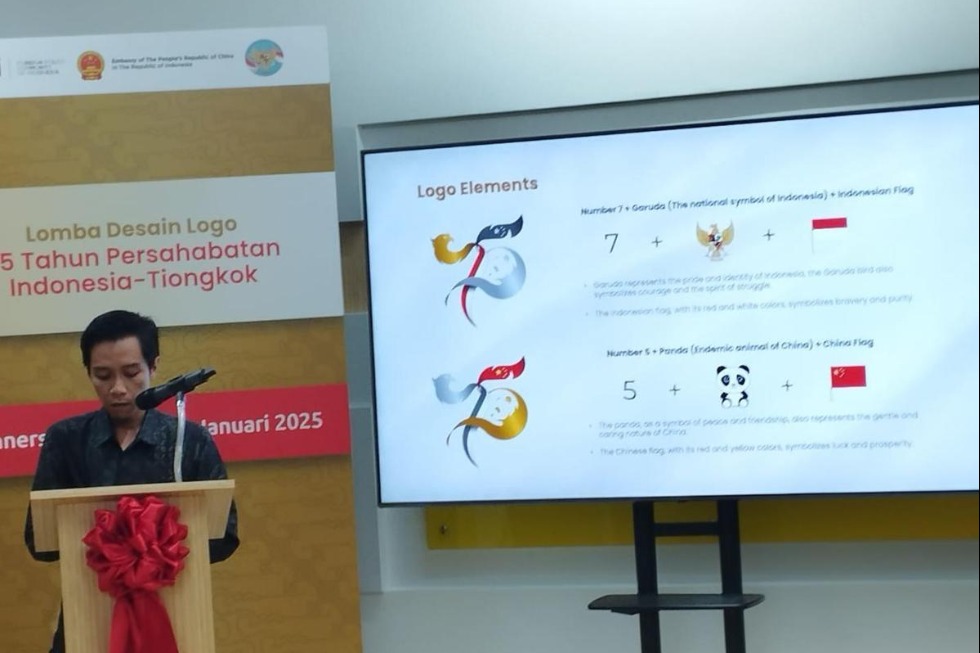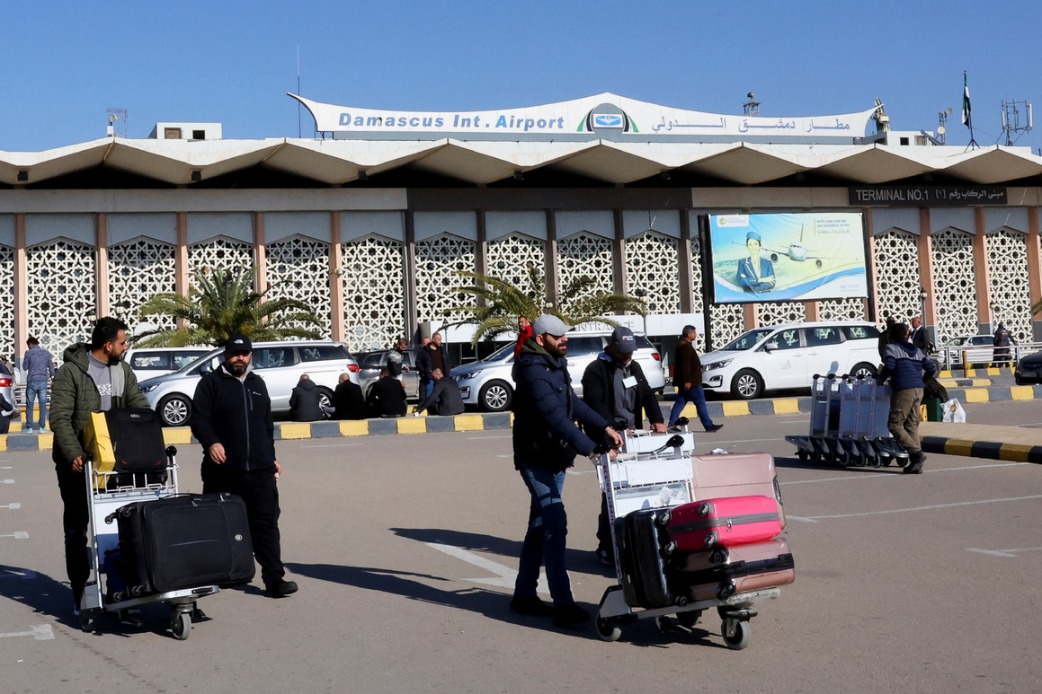Nation to strengthen cooperation with Russia


Two countries agree to align BRI, Eurasian Economic Union
Efforts will be made to better align the Belt and Road Initiative with the Eurasian Economic Union based on openness, transparency and concern for each other's interests, according to a statement signed by Premier Li Keqiang and Russian Prime Minister Dmitry Medvedev.
The statement, issued on Wednesday, aims to promote regional integration and reiterates the great importance the two countries place on bilateral cooperation as a longterm and strategic choice.
China and Russia will offer firm support to each other on major bilateral and international issues to achieve prosperity as well as international peace and development, it said.
Li and Medvedev also witnessed the signing of nine agreements to promote cooperation in areas such as energy, agriculture, customs clearance and aerospace, with the documents drafted after the 23rd China-Russia Prime Ministers' Regular Meeting in Beijing. Before that, Medvedev was in Shanghai to attend the China International Import Expo.
Bilateral trade volume is expected to hit $100 billion this year and has great growth potential, Li said during the meeting. He called for the two nations to further improve trade facilitation and expand two-way investment.
The premier wished for strengthened cross-border e-commerce and cooperation in innovation, especially in technological applications and fundamental research. Exchanges in media, tourism, healthcare and sports should also be enhanced.
China is willing to work with Russia and other countries to safeguard fundamental principles of the World Trade Organization and free trade, and promote multilateralism, Li said. China would like to further coordinate the BRI with the union and welcomes other countries to join in and build an open cooperation platform, he said.
Medvedev said Russia is ready to expand bilateral trade and two-way investment with China. He called for the establishment of an investment fund for innovation, and strengthened cooperation in e-commerce, agriculture, nuclear power, transport and cooperation in Russia's Far East region and Northeast China. Both countries should safeguard multilateralism and the WTO-based free trade system, and fight against unilateralism and protectionism.
After the meeting, the two leaders met with journalists. Li said regular bilateral meetings have been held over the past 22 years, and this demonstrates the high level of the Sino-Russian comprehensive strategic partnership and cooperation in diverse fields.
The two nations should promote a stable supply and demand balance for energy, and develop new growth drivers in resources and agricultural products, Li said.
Medvedev said both countries should support the development of small and medium-sized enterprises and promote projects in areas including petroleum and natural gas.
Stanislav Mitrahovich, chief expert at the National Energy Security Foundation of Russia, said the two countries signed an agreement on new projects for the Tianwan nuclear power plant in Jiangsu province on Monday. Such cooperation is important for both sides, as Russia always seeks to export its advanced nuclear power technology, Mitrahovich said.
Igor Yushkov, a professor at Financial University in Moscow, said China will likely increase its participation in energy projects in Russia. The two countries' energy sector cooperation has great potential, he said.
Ren Qi in Moscow contributed to this story.

































